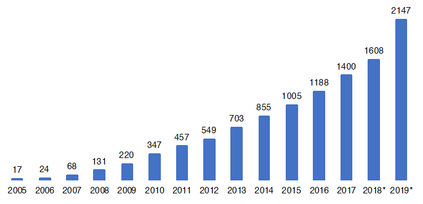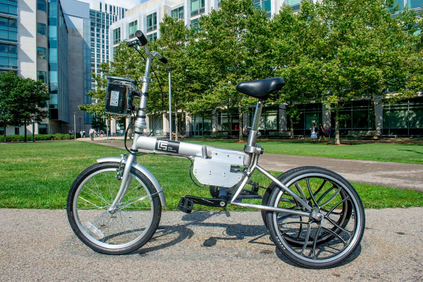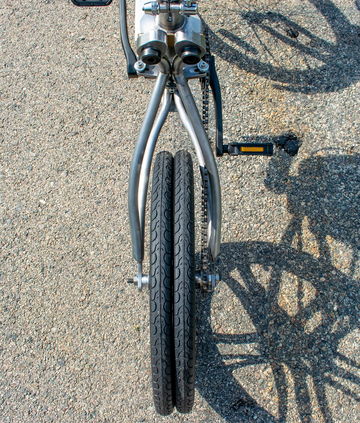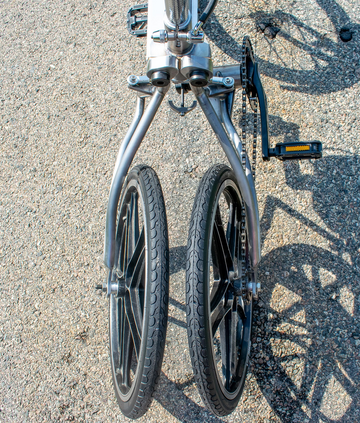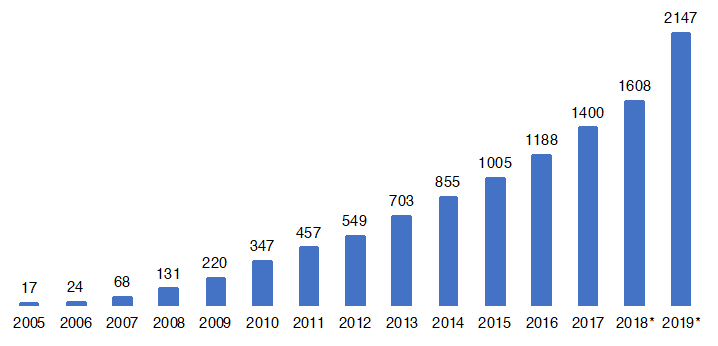Rethinking cities is now more imperative than ever, as society faces global challenges such as population growth and climate change. The design of cities can not be abstracted from the design of its mobility system, and, therefore, efficient solutions must be found to transport people and goods throughout the city in an ecological way. An autonomous bicycle-sharing system would combine the most relevant benefits of vehicle sharing, electrification, autonomy, and micro-mobility, increasing the efficiency and convenience of bicycle-sharing systems and incentivizing more people to bike and enjoy their cities in an environmentally friendly way. Due to the uniqueness and radical novelty of introducing autonomous driving technology into bicycle-sharing systems and the inherent complexity of these systems, there is a need to quantify the potential impact of autonomy on fleet performance and user experience. This paper presents an ad-hoc agent-based simulator that provides an in-depth understanding of the fleet behavior of autonomous bicycle-sharing systems in realistic scenarios, including a rebalancing system based on demand prediction. In addition, this work describes the impact of different parameters on system efficiency and service quality and quantifies the extent to which an autonomous system would outperform current bicycle-sharing schemes. The obtained results show that with a fleet size three and a half times smaller than a station-based system and eight times smaller than a dockless system, an autonomous system can provide overall improved performance and user experience even with no rebalancing. These findings indicate that the remarkable efficiency of an autonomous bicycle-sharing system could compensate for the additional cost of autonomous bicycles.
翻译:由于社会面临着人口增长和气候变化等全球性挑战,现在比以往任何时候都更迫切需要重新思考城市,因为社会面临着人口增长和气候变化等全球性挑战,城市的设计不能从其流动系统的设计中抽象地抽象地从城市的设计中汲取,因此,必须找到高效的解决办法,以生态方式在整个城市运送人员和货物,自主的自行车共享系统将结合车辆共享、电气化、自主和微机动性等最相关的好处,提高自行车共享系统的效率和便利,鼓励更多人以对环境友好的方式骑自行车和享用城市。由于将自主驾驶技术引入自行车共享系统的独特性和根本的新颖性,以及这些系统固有的复杂性,有必要量化自主权对车队业绩和用户经验的潜在影响。本文展示了基于自动自行车共享系统的车队行为,包括根据需求预测重新平衡系统。此外,这项工作还描述了不同参数对系统效率和服务质量的影响,并量化了自动驾驶技术在自行车共享系统中超越现有双轨效率的程度。 本文介绍了基于自动自动化系统的规模比自动自行车共享系统更小的系统更小,展示了比自动使用系统更小的运行时间,展示了比自动自行车系统更小的系统更小的绩效。

